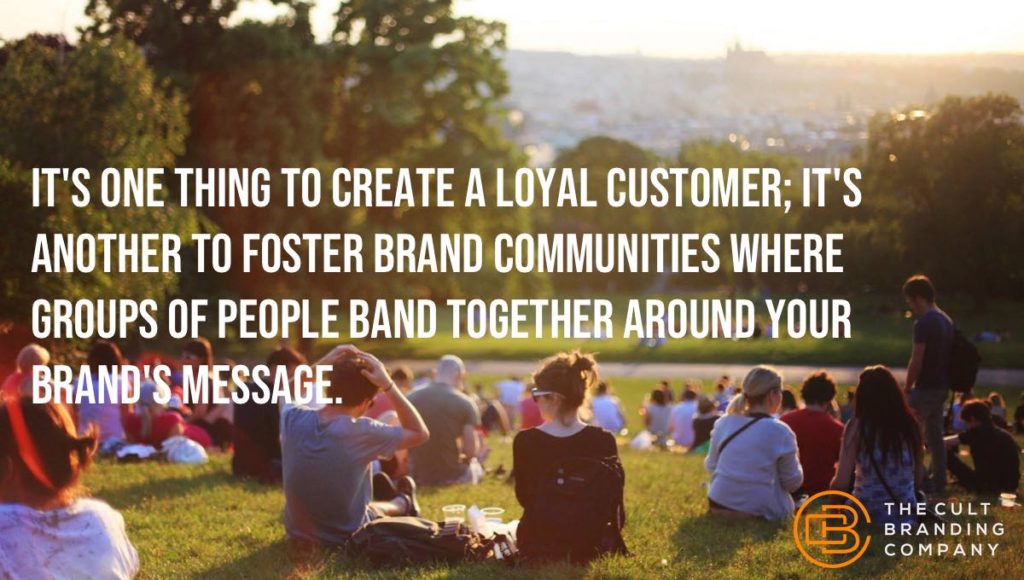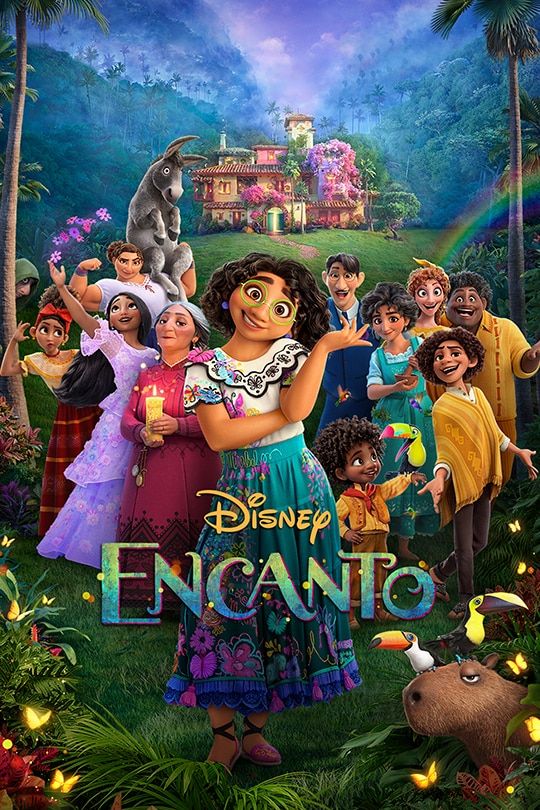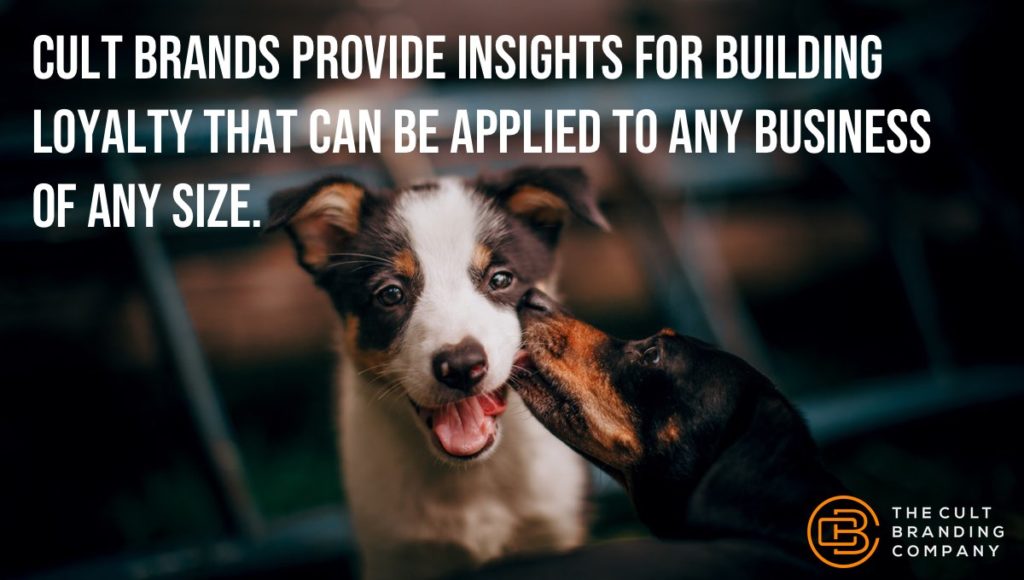Heaven’s Gate, Jonestown, Scientology, Manson Family … destructive cults abound.
Destructive cults manipulate their members and do not care about their well-being. It’s no wonder why “cult” has become a dirty, four-letter word.
Not all cults, however, are destructive. At their cores, cults are groups that demonstrate a strong commitment towards someone or something.
Many cults are benign, harmless. In fact, they can be helpful to their members’ well-being. Some cults even have the power to elevate and inspire their members.
When a benign cult is centered around a brand, we call it a Cult Brand.
Businesses that harness the power of cults—cultivating evangelical customers and cohesive brand communities—possess an uncommon competitive advantage.
These Cult Brands enjoy unprecedented customer loyalty, word of mouth, and profitability.
Is Cult Branding Right For Your Business?
Perhaps you think your business isn’t cult-worthy. Maybe you’re just not ready yet. Or, maybe you’re just not interested in the hard work it takes to develop and maintain a passionate fan base.
But, whether you’re poised to establish a Cult Brand or not, there’s a lot you can learn from the psychological dynamics of cults and how they form that can be applied to any business of any size.
For example, they instruct you on how to:
- Build meaningful connections with your customers.
- Be chosen more often than your competitors.
- Get your customers to build awareness of your business for you.
- Cultivate customer loyalty that impacts the bottom line.
Clearly, there’s a lot we can learn from cults. Let’s dive in.
5 Reasons Customers Join Groups
Before we lay out a strategy you can use to create a cult around your business, let’s briefly explore five reasons why customers join brand communities and movements in the first place:
1) Humans want to belong
From Abraham Maslow, we learned that love and belonging is a fundamental human need. Customers instinctively look for social groups they can feel a part of.
2) Humans need a sense of identity
Another psychologist, Erik Erikson, pointed out that humans reach a point in their development where they begin to form their own identities.
At this Fidelity stage, as Erikson called it, people develop the capacity to maintain loyalties and allegiances to valued institutions and ideals.
To help form identity, people associate with social groups, including brand communities, that bring importance and meaning to their lives.
3) Humans rally around shared values
Values and ideals are at the core of what people congregate around. Maslow called these values being values. They include ideals like truth, goodness, aliveness, uniqueness, simplicity, justice, playfulness, and self-sufficiency.
Different people resonate with different being values. Brands that clearly express specific being values act like homing beacons to customers who naturally seek out brands who have the same values they do.
4) Humans want peak emotional experiences
Emotions give us a sense of aliveness. Although modern humans tend to rely more on thoughts and reason, emotions give life texture and provide meaning.
People gravitate to groups that provide them with emotional experiences they can’t get on their own. (Try replicating, in the privacy of your living room, the elation fans experience at a Jimmy Buffett concert or a Star Trek convention.)
5) Humans seek hope
Life is difficult. Customers seek out groups that provide relief from life’s challenges.
Cult Brands create movements that provide the promise of a better tomorrow. Star Trek offers hope of a peaceful future. Harley-Davidson offers hope of freedom on the open road. Life is good offers hope and optimism for the good life.
7 Steps to Create a Cult, Tribe or Movement
The main thing you need to understand about customer communities is that your customers create them on their own. That said, here are seven steps you can take to increase the likelihood:
Step 1: Determine what needs your business fulfills
Figure out which human needs your business naturally fulfills. Then, determine how your brand fulfills these needs for your customers in a way no other business does.
Step 2: Identify your symbols
Determine what your business symbolizes in the minds of your customers. These symbols are also called archetypes.
The Harley icon, for example, showcases a flying eagle, a dynamic symbol of power, choice, and freedom.
Step 3: Discover your emotional targets
Uncover how your customers are emotionally connected to your brand. When the symbol enters their mind, what do your target customers feel?
Nike’s swoosh symbol may evoke feelings of determination, competitiveness, and triumph for its customers. Apple’s symbol may evoke feelings of creative self-expression, possibility, or truth.
Step 4: Clarify your brand values
While core values are internal to your organization, brand values are external. Your customers may never know your corporate values, but if you are effective, they will have a clear perception of what you stand for (your brand values).
All Cult Brands have clear brand values that attract like-minded people to their business.
The Life is good Company stands for optimism. Oprah stands for self-empowerment.
Step 5: Design your messaging
Ensure that your messaging promotes the fulfillment of your core needs, highlights your symbol, triggers your emotional targets, and captures your brand values.
That is, leverage these customer insights to develop more effective media.
Consider how companies spend billions on advertising without clearly understanding any or all of these psychological insights that drive advertising effectiveness.
Step 6: Target your messaging
Make sure your messages are in the appropriate market channels. Cult Brands know their customers, which means knowing where they hang out and what they like to do.
Energy drink Red Bull, for example, initially avoided traditional media, opting for grassroots marketing by handing out samples on college campuses. Then, they began sponsoring extreme sporting events where their target market congregated.
Step 7: Set up your environment
Provide people the tools to form their own groups. Whenever possible, create a space where your customers can meet and interact with one another—either in person or online.
Establish social events that reflect your mission. Star Trek conventions, Jimmy Buffett’s concerts, and Harley’s HOG Rallies are excellent examples.
Set up conditions for a fun, playful environment where friendships can be forged. The stronger the bond members have to one another, the stronger the bond members will have with your business.
Onward
Remember, never attempt to control your community. Instead, participate as a co-creator.
Okay, now it’s your turn to go start a movement, establish a tribe, create a Cult Brand.






